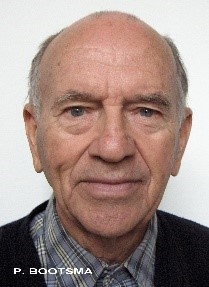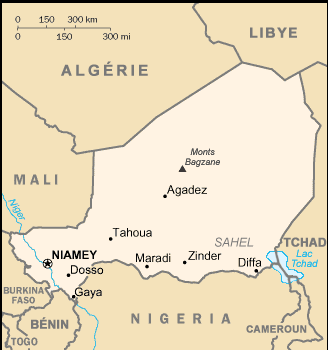Your basket is currently empty!
Fr. Con Murphy: A Legacy of Faith, Wisdom, and Cultural Reverence

Posted on :
In the realm of spiritual guidance and mentoring, the impact of an individual can leave profound imprints on generations to come. Such is the case of Fr. Cornelius Murphy, a formator whose unwavering dedication spanned over 23 years. Revered by many during his 8-year tenure in Nairobi as the spiritual director baptized “Mzee,” a Swahili term of respect for an esteemed elder, Fr. Murphy’s influence transcended boundaries of culture and language, leaving behind a legacy of faith, wisdom, and cultural reverence.
Fr. Murphy’s mission, as articulated in one interview, encompassed a profound aspiration: “My greatest challenge is to do my job well, that is to be of assistance in enabling students to become aware of God’s actions in their lives.” His deep-seated joy stemmed from witnessing numerous students evolve into accomplished SMA Missionaries, embodying an authentic spirit of internationality within the formation house, despite the inevitable tensions arising from multicultural living.
Throughout his years in the formation houses, Fr. Murphy navigated the intricate web of interactions with young individuals and the intellectually stimulating environments created by philosophy and theology students. These encounters challenged him academically, liturgically, and spiritually, fostering personal growth and mutual learning.
Fr. Murphy’s approach to mentorship was not characterized by mere dispensing of advice but by a call to authenticity and introspection. He encouraged seminarians to embrace their strengths, acknowledge their limitations, and utilize their unique gifts to the fullest extent. A cornerstone of his teachings was the power of prayer, emphasizing that through a prayerful disposition, individuals could not only become faithful and proficient missionaries but also find genuine happiness in their calling.
Bringing to light the profound impact of Fr. Murphy’s mentorship, testimonies from individuals like Fr. Anicet Senganambi and Fr. Richard Angolio paint a vivid picture of his influence. Reminiscing about his interactions with Fr. Corn, Fr. Anicet Senganambi, currently serving in Italy, fondly recalls him as a compassionate father figure who offered sage advice with a touch of humor. “You are the best, but don’t tell anybody. They may be jealous,” Fr. Corn would jest, imparting a valuable lesson on the intrinsic worth within each individual.
Mr. Lazarus Kubasu, a former SMA seminarian, eloquently captures Fr. Corn’s passion for embracing cultural diversity and fostering a sense of pride in African heritage. “Fr. Murphy’s ardor for African authenticity and the vibrant tapestry of Kenyan culture permeated every aspect of his being,” Mr. Kubasu writes. Fr. Corn’s unwavering commitment to bridging the gap between faith and culture served as a guiding light, inspiring others to embrace their diverse backgrounds.
Fr. Corn’s aphorisms, “Sell yourself then sell your message,” and “Presence is all you need, but absence says it all,” have profoundly influenced Fr. Richard Angolio, serving as guiding principles in his life and ministry. These wise words underscore the importance of genuine connection, engagement, and personal interaction in spreading the Gospel—a lesson that Fr. Angolio has embraced throughout his journey.
Drawing from Fr. Corn’s wisdom, Fr. Angolio has come to understand the profound significance of building authentic relationships and establishing meaningful connections with communities. He recognizes that true ministry goes beyond mere presence; it involves active engagement and sincere involvement in the lives of others.
As we come to terms with the loss of this impactful figure, let us remember and carry forth Fr. Cornelius Murphy’s enduring legacy of love, empathy, and reverence for the spiritual and cultural foundations that shaped his life’s work.
Fr Con died unexpectedly at the African Missions, Blackrock Road, Cork on Thursday, 8 February, 2024 at the age of 87 years.
In the words of Lazarus Kubasu, “May his spirit find solace in eternal peace, and may his memory forever inspire and guide us along the sacred pathways of faith.”
4 responses to “Fr. Con Murphy: A Legacy of Faith, Wisdom, and Cultural Reverence”
-
A wonderful tribute. Congratulations Fr Dominic. John Denvir SMA.
-
Great and true words about “Mzee” Fr. Cornelius Murphy,SMA. He would say to us during spiritual direction “Can you see the hands of God in your situation?”
May he rest in peace of the Lord. Amen.-
Great work Fr Domnic for recollecting our memories about Fr. Corn. His way of living was indeed a model and a challenge to future priests inder his mentorship. Apart from the spiritual direction, he equally bonded with the needy who could call upon him around and far a way from the SMA House of formation. His gestures of charity were always practiced with tenderness and empathy. He cared to listen mindfully and could always give something to the destitutes. He never subscribed to bidding the needy simply with a bye bye without being of concrete help. From my interactive experience with Fr. Cornelius Murphy, I came to a practical understanding of Jesus’ challenge to the disciples…give them something to eat yourselves…. Still, his practical way of living his christian faith was to make present God’s love. He could not allow the words of St James haunt him for being indifferent. Fr. Cornelius could not just pray and bless for the needy who sought his help. He always extended his hand to give and rarely could he turn a cold shoulder to genuinely needy people thus aligning his life with the divine instruction: (cf. 1 John 3,17; Mtt 5,42; James 2,14-17; Heb 13,16; Prov.22,9).
May you rest gently Fr. Corn interceding for us as we follow your life examples.
Forever cherished for the moments shared as my spiritual director in my initial discernment journey with SMA.
-
-
Well done Fr. Dominic. Thanks for sharing with the world the life and great works of Fr. Con whom l was privileged to dine and wine with during his tenure as a Formater at the SMA Formation House in Nairobi Kenya. He was a great man, a counselor and a great servant of God. May his soul rest in perfect peace with the Angels.






Leave a Reply